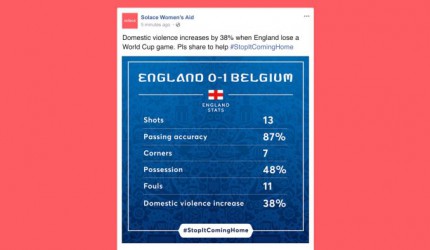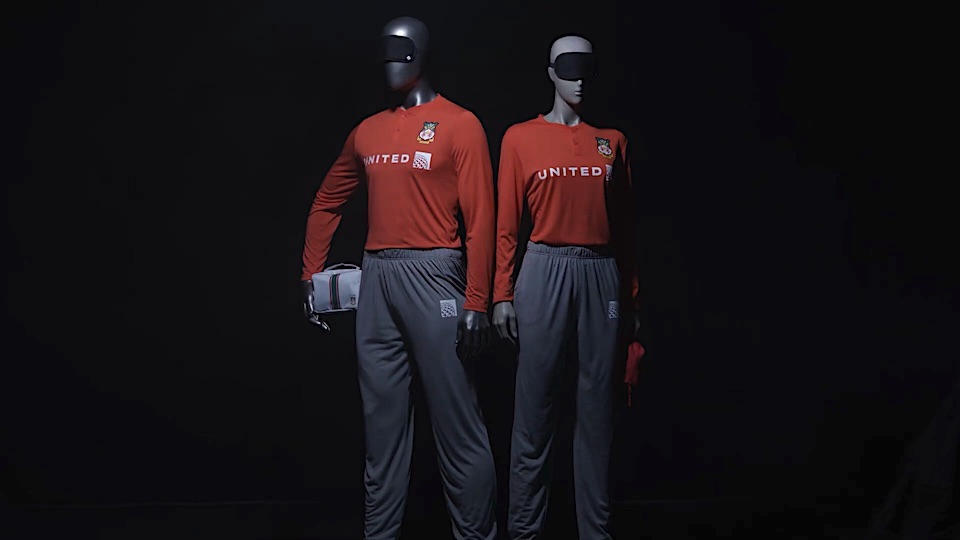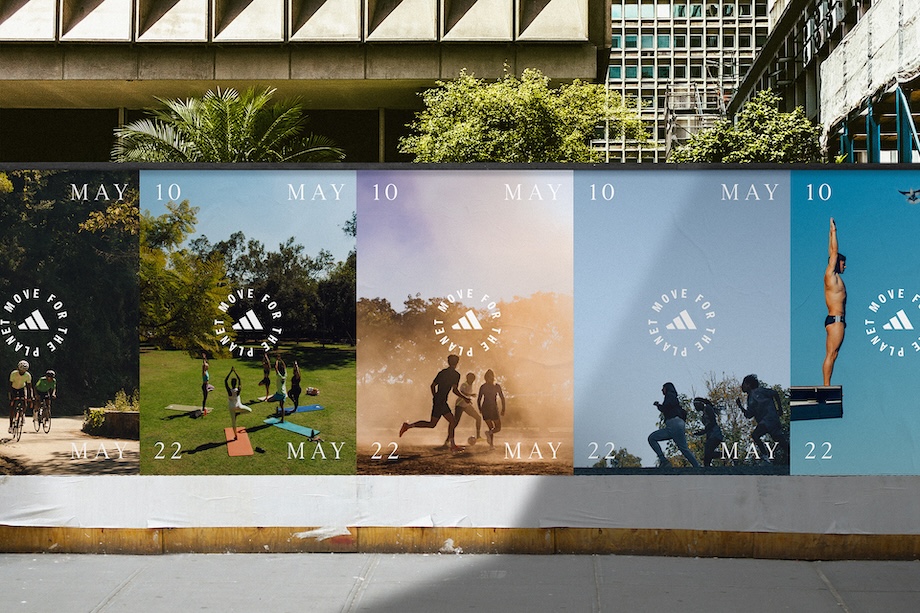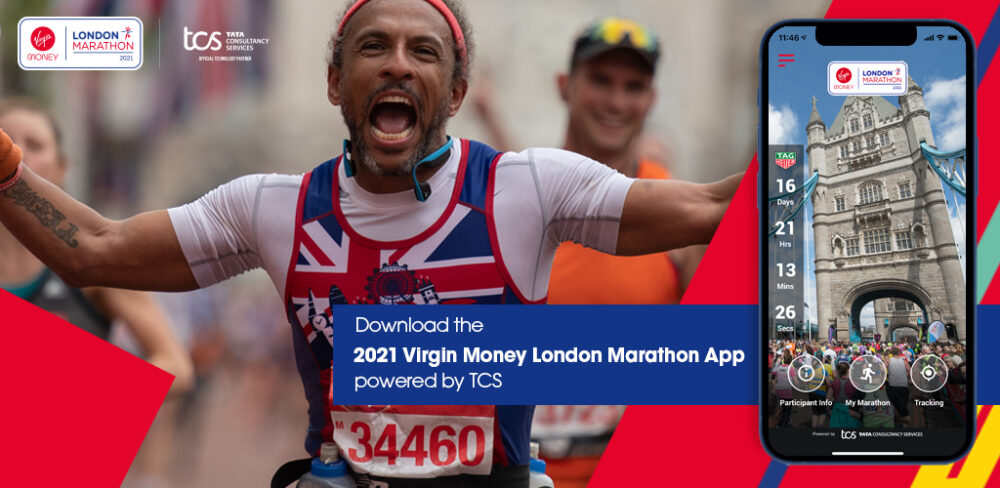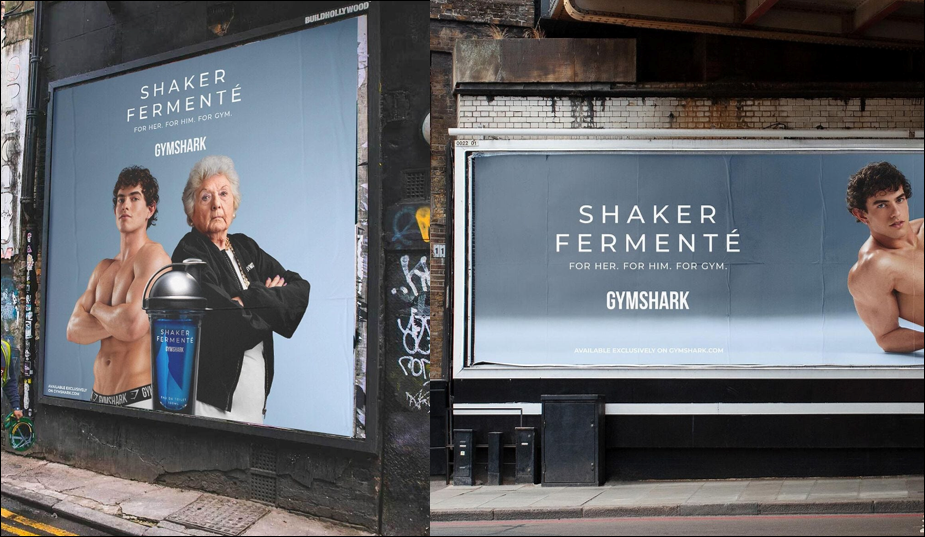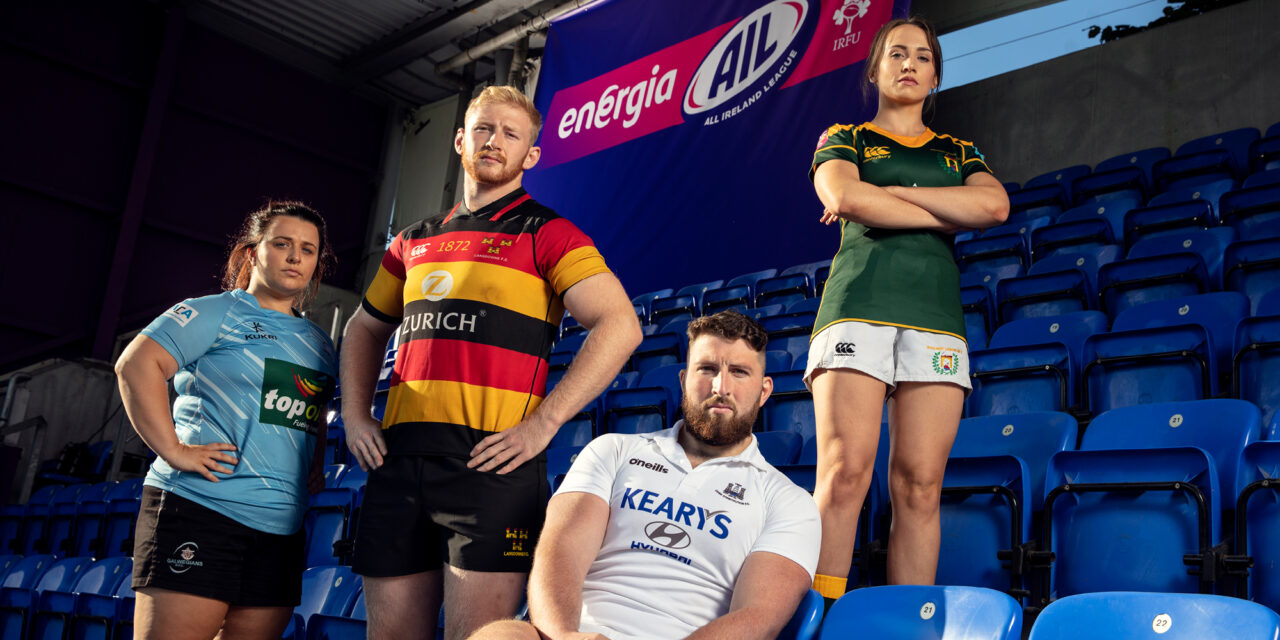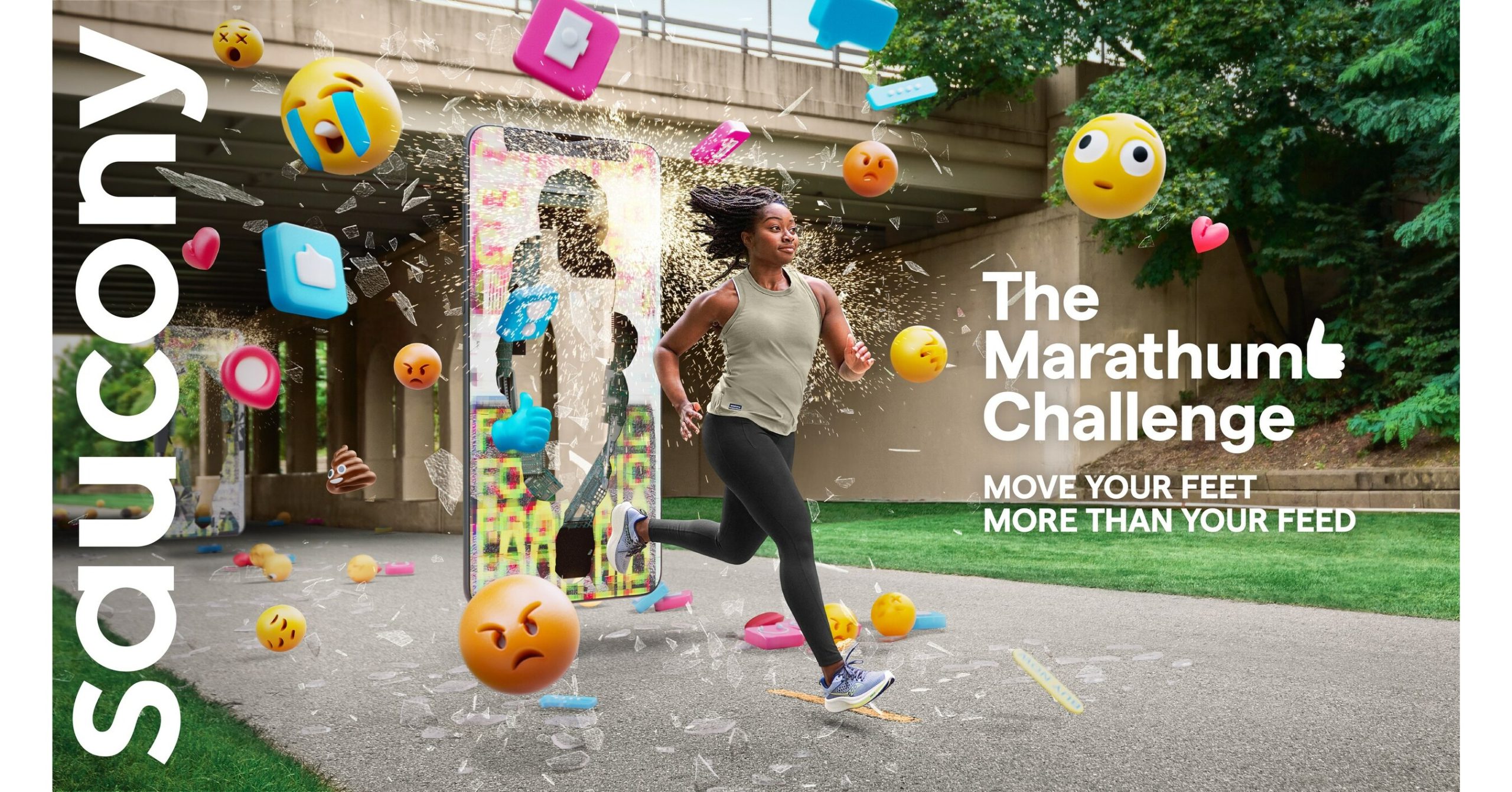Solace Women’s Aid launched a social media stats-led campaign leveraging the FIFA World Cup to raise awareness of domestic violence over the World Cup.
The tactical mechanic was surprising in its objective and startling in its simplicity: persuade England fans to retweet the campaign hashtag #StopItComingHome during the tournament.
Despite the confusingly anti-England sounding hashtag, the team chose the copy line following on from a study undertaken by the University of Lancaster which discovered that domestic violence spikes 26% when England play and by 38% when they lose.
These horrific statistics motivated Solace Women’s Aid and agency Stack to launch a campaign to try and do something about the abuse, to generate conversation and discussion, to change thinking and ultimately to change behaviour too.
Instead of choosing a shocking image or a celebrity spokesperson, the team took a social route that focused on the statistics.
The campaign kicked off ahead of the final England group game against Belgium game with a simple idea: immediately after the match the team published both the official FIFA match statistics alongside the increased domestic violence statistics.
These were then tweeted to BBC football presenters Gary Lineker and Rio Ferdinand with the aim of driving sharing and social spread and generated retweets.
Watching England go out is heartbreaking – but for some, it's terrifying.
Please RT to support #StopItComingHome and help us end violence towards women and young girls.#ENGCRO #ENG #EnglandvCroatia #CROENG #WorldCup pic.twitter.com/uaNh6YJtWS
— Solace Women's Aid (@SolaceWomensAid) July 11, 2018
The content was also posted across other social platforms too: including Instagram and Facebook.
Initially the campaign failed to take off or gain traction, so it was tweaked before the next game against Colombia game after which the team linked up with 8 Outdoor Media which saw #StopItComingHome appear across 38 outdoor sites across the UK through the remainder of the tournament.
Following the Swedish game, others – such as Labour MP Stella Creasy – got behind the campaign
and additional celebrities and names got on board for the Croatia match too such as The Guardian’s Owen Jones.
Comment:
We certainly appreciate the bravery of the objective: trying to get English fans to retweet #StopItComingHome during the World Cup.
After all, the line runs directly counter cultural to all the trends and memes and singing of the Coming Home’ anthem through Russia 2018.
But it turns out that England supporters are more superstitious than one might imagine.
Contemporary movements such as #MeToo and #TimesUp show that if you can generate sufficient leverage and social spread then you can get huge numbers of people talking about a specific cause issue and you can get some of them to change their thinking and their behaviour.
The social statistics and the fact that the campaign trended during the tournament suggest that this campaign was a solid success.
The evening after the Croatia defeat it was the 6th highest trending topic in the UK.
In total, the campaign generated around 2000 tweets and was seen by more than three million people – with no spin, no budget and no shock tactics.
This was just one of the anti-domestic violence campaigns leveraging Russia 2018.
Another of our stand out initiatives was the campaign by National Centre For Domestic Violence called ‘The Not So Beautiful Game’ (see case study).
Links:
Solace Women’s Aid
https://www.solacewomensaid.org/
https://www.facebook.com/SolaceWomensAid/
https://www.instagram.com/solacewomensaid/
https://twitter.com/SolaceWomensAid
https://www.linkedin.com/company/solace-women%27s-aid
Stack

